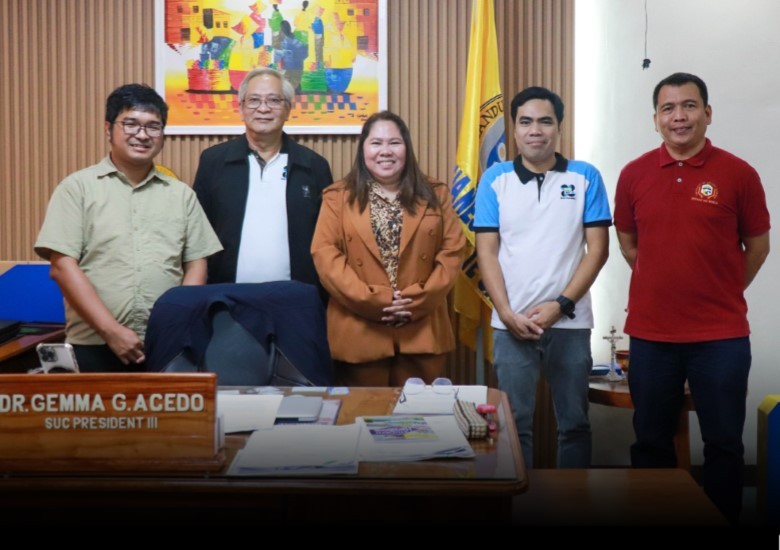Muscovy duck farming eyed as new lifeline for Catanduanes farmers
SDG 1: No Poverty, SDG 2: Zero Hunger, SDG 8: Decent Work and Economic Growth, SDG 9: Industry, Innovation, and Infrastructure, SDG 11: Sustainable Cities and Communities, SDG 16: Peace, Justice, and Strong Institutions, SDG 17: Partnerships for the Goals
October 7, 2025
Catanduanes State University (CatSU) is joining forces with the Department of Science and Technology–Philippine Council for Agriculture, Aquatic and Natural Resources Research and Development (DOST-PCAARRD) to turn Muscovy duck farming into a science-driven enterprise that could boost food supply and income in the island province.
CatSU President Dr. Gemma G. Acedo met on October 6 with Director Synan S. Baguio, Chief Science Research Specialist and head of PCAARRD’s Livestock Research Division, to map out a partnership anchored on research, breeding, and community-based production systems. The talks focused on how science and local know-how can be combined to make Muscovy duck raising viable for small farmers.
The meeting was joined by Dr. Ronilo O. De Castro, Senior Research Specialist of DOST-PCAARRD; Dr. Michael Owen P. Malijan, Dean of the College of Agriculture and Fisheries; and Dr. Jose Z. Tria, Director of Research and Development Services.
PCAARRD has been pushing to revive interest in Muscovy duck as an alternative poultry source. Earlier this year, it rolled out a three-day training at Ifugao State University (IFSU) on breeder farm management, performance monitoring, and hatchery practices—part of a national effort to build a stronger, more resilient duck industry.
The agency says the country’s duck sector is worth ₱5.1 billion and supports more than 500,000 households, many of them in rural areas with limited access to commercial livestock ventures.
For CatSU, the collaboration opens the door for field trials, farmer training, and the rollout of improved breeding lines tailored to the province’s terrain and climate.
